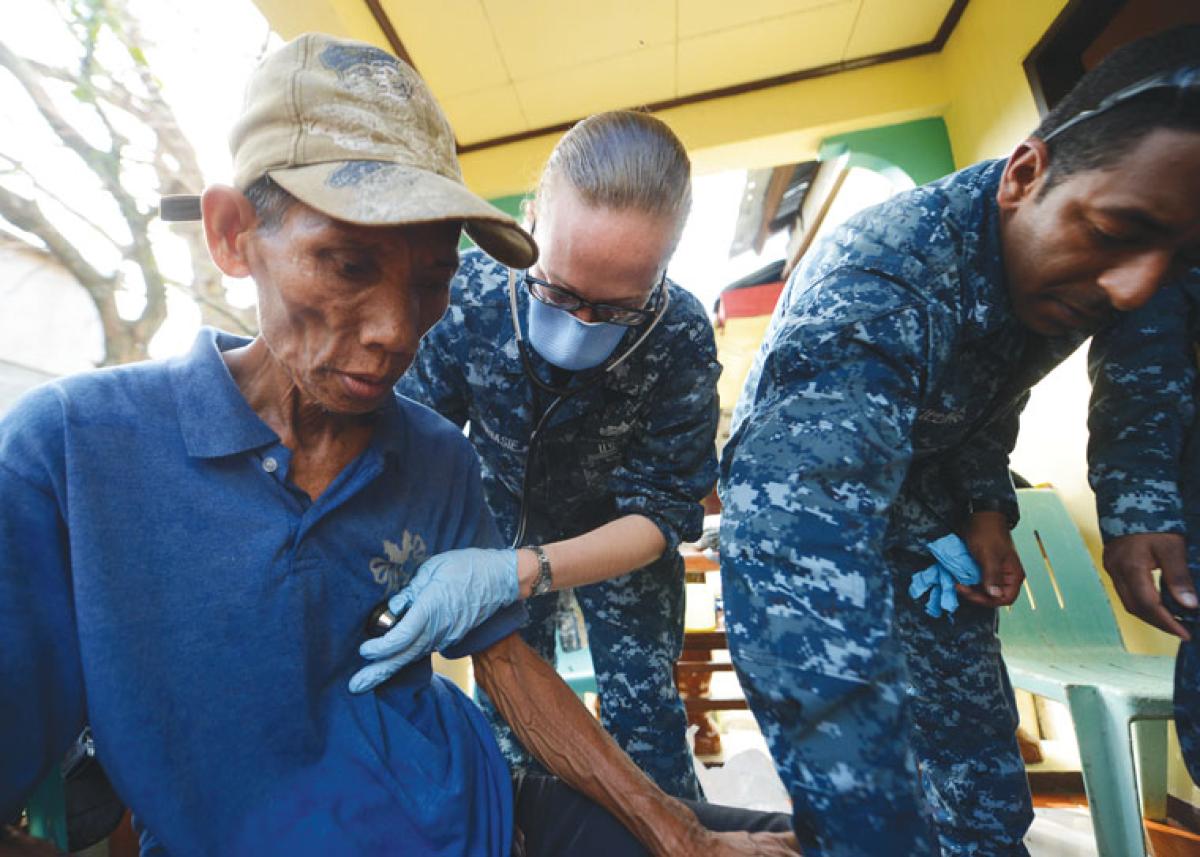We’ve all heard the sayings. I certainly have uttered them, usually in the frustrated throes of a real or perceived shortcoming of one of my “kids” (a.k.a. Sailors). You have heard “kids are just lazy these days,”
My have uttered them, usually in the frustrated throes of a real or perceived shortcoming of one of my “kids” (a.k.a. Sailors). You have heard “kids are just lazy these days,” or “This generation is weak. They’re a bunch of Nintendo babies,” or the ever popular, “Back in my day…[fill in the blank].” Some crusty and “wise” old chiefs are constantly bemoaning the fact that this newest generation is the worst of all time and will cause the downfall of Western civilization. There is truth in some of those sayings but also some significant fallacies.
I look around at these “weaklings” and “Nintendo babies” and see a different picture. I see a 23-year-old aircrewman on his first deployment flying multiple missions every day to help victims of super-typhoon Haiyan after it flattened the Philippine city of Tacloban. This young sailor and his crewmates moved more than 7,000 pounds of materiel each mission by hand! That is like moving a two-bedroom house in 20 minutes, day in, day out, for as long as it takes to save the lives of a far-away people he has never met before. I still have a tear-stained note given to me from an older Filipino man, expressing his gratitude at everything we Americans were doing for his people.
I also remember two young maintainers working through the night to replace a failed wing flap drive motor. These exhausted Sailors voluntarily worked the next morning to help load that very same aircraft with supplies bound for Tacloban. There also were scores of young Marines who were tasked with removing the bodies of the victims, often with crying family members insane with grief right alongside them. And there are youngsters such as my brother, a young Marine who was in the second battle of Fallujah during one of his two tours in Iraq. Witnessing his ongoing battle with post-traumatic stress disorder (PTSD), I can tell you my brother is not weak by any stretch of the imagination. And let’s not forget the everyday heroes we have around us all the time: Sailors and Marines who make the planes fly, stand watches in engine rooms on ships and submarines, serve us meals in the galley, process our paperwork so we can all get paid on time, and all those who guard the walls at night to keep us and our loved ones safe.
It is up to us to train and mold these young Sailors and Marines, male and female, black or white, and religious or secular. Although I have failed at times because I was hard-headed and used to doing things a certain way, there are a few simple guidelines I have learned and had success with:
• Train, lead, then get out of the way. There is nothing worse than a leader who micromanages people. Train them right from the beginning, then step back and supervise from a respectable distance, always ready and available to offer direction when needed.
• Empower and foster independent thinking and initiative. Let your Sailors lead as much as possible so they become less reliant on you! Don’t program their minds with dependency and failure.
• Treat everyone equally. Judge on merits and leave your personal prejudices at home. This is common sense, but if everyone did it there would be no need for a command-managed equal opportunity program.
• Praise in public, correct in private. Seek out ways to help Sailors genuinely feel accomplishments in their hearts and minds. Those “internal” rewards are worth more than all the gold in Fort Knox.
The challenges our new generation of Sailors and Marines face are immense. We have left them with greater responsibilities, fewer resources, less funding, and greater political barriers. Our job is to teach them before it is too late. I am confident this generation will rise to the occasion and accomplish the mission with honor just as we did. When my time comes, I will sit happily in retirement, safe and content knowing they have the watch.



